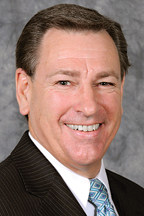 West Virginia’s broadband future is up for hot debate in the state legislature as Internet haves and have nots fight over whether the state should spend money to bring broadband to those lacking it or improve service for those that do.
West Virginia’s broadband future is up for hot debate in the state legislature as Internet haves and have nots fight over whether the state should spend money to bring broadband to those lacking it or improve service for those that do.
House Bill 2979, a bill to expand the broadband purview of the West Virginia Infrastructure and Jobs Development Council, has turned into one of the most contentious bills before the legislature this term. An amendment to redefine what speeds represent “broadband” and requiring the council to prioritize efforts on unserved areas has sparked the most debate.
Sen. Robert Plymale (D-Cabell) introduced and won support for an amendment that would discard the current provider-favored standard defining a community as “served” if customers can buy at least 200kbps service. Plymale favors adopting the federal broadband speed standard — 4/1Mbps as the bare minimum. Plymale also wants the state to devote most of its resources to getting broadband to rural areas that do not have the service today.
“If you’re going to compete in this world today, you have to have access,” Plymale told lawmakers. “Access has to be the number one item, and this amendment allows access to be the priority.”

Plymale
But other lawmakers representing constituents in communities that already have broadband, but receive inadequate speed and service, objected to Plymale’s amendment.
Sen. Herb Snyder (D-Jefferson) claims Plymale’s amendment would restrict the council’s ability to manage broadband resources and require it to spend most of its funding on wiring smaller communities at the cost of service upgrades that could reach more people. Approximately 85,000 West Virginians still have no broadband access other than satellite.
“It’s entirely appropriate to use taxpayer dollars to help and assist people to get broadband service and get on the information superhighway rather than upgrading those already on it,” argued Sen. Mitch Carmichael (R-Jackson), who also happens to also be an employee of Frontier Communications.
Much of the state’s broadband infrastructure spending has been devoted to institutional and middle mile networks that consumers and small businesses cannot directly access. Spending on “last mile” infrastructure makes the difference between getting broadband service or being told it is unavailable.
But Sen. Snyder argues satellite broadband already offers access to the entire state, so broadband speed improvements were more important.
“As we speak the entirety of West Virginia is bathed in 5Mbps satellite broadband service,” Snyder said. “So we’re already surpassing that standard in the entire state, unless you’re in a cave where you can’t get the signal.”
Getting the best broadband bang for the buck was a priority for Sen. Clark Barnes (R-Randolph). He wanted to make sure any amendment would not prevent the council from spending money in areas where satellite service was available.
“If we have 10 folks up in Possum Hollow that have no access to broadband, would they receive priority over the thousand people who only have 2Mbps service?” he said.
The answer would seem to be yes under Plymale’s amendment.


 Subscribe
Subscribe More than six months after Hurricane Sandy did her handiwork on coastal New York, New Jersey and Connecticut, hundreds of residents are still getting phone bills from Verizon for phone and Internet service they have been without since Halloween.
More than six months after Hurricane Sandy did her handiwork on coastal New York, New Jersey and Connecticut, hundreds of residents are still getting phone bills from Verizon for phone and Internet service they have been without since Halloween. Verizon’s response has mostly been shrugged shoulders and no firm estimate of when service will be repaired.
Verizon’s response has mostly been shrugged shoulders and no firm estimate of when service will be repaired. AT&T continues its quest to make landline service a really bad deal with the introduction of a new bill-padding fee that wireless customers will not have to pay.
AT&T continues its quest to make landline service a really bad deal with the introduction of a new bill-padding fee that wireless customers will not have to pay. Meyer does not see it that way. He considers AT&T’s new fee a stealth rate hike.
Meyer does not see it that way. He considers AT&T’s new fee a stealth rate hike. Data caps protect incumbent big studio and network content creators at the expense of independent producers and others challenging conventional entertainment business models.
Data caps protect incumbent big studio and network content creators at the expense of independent producers and others challenging conventional entertainment business models.
 Time Warner Cable subscribers in Wisconsin are facing the third rate increase since October 2012.
Time Warner Cable subscribers in Wisconsin are facing the third rate increase since October 2012.